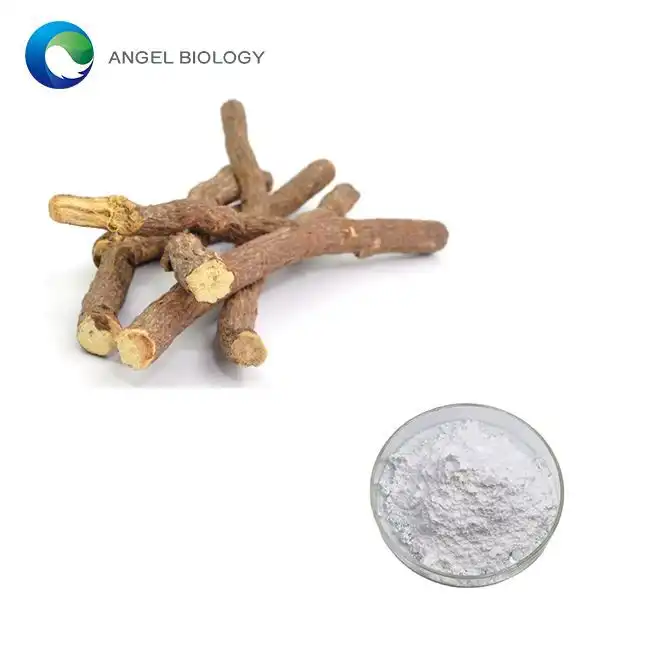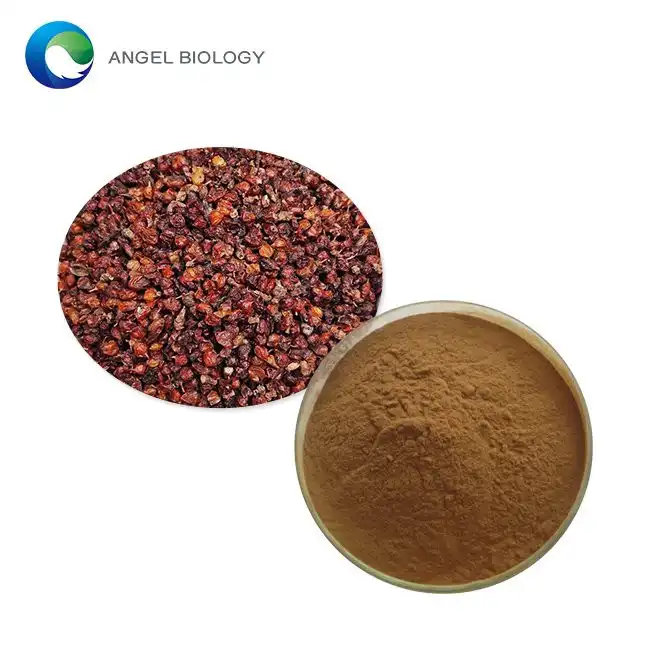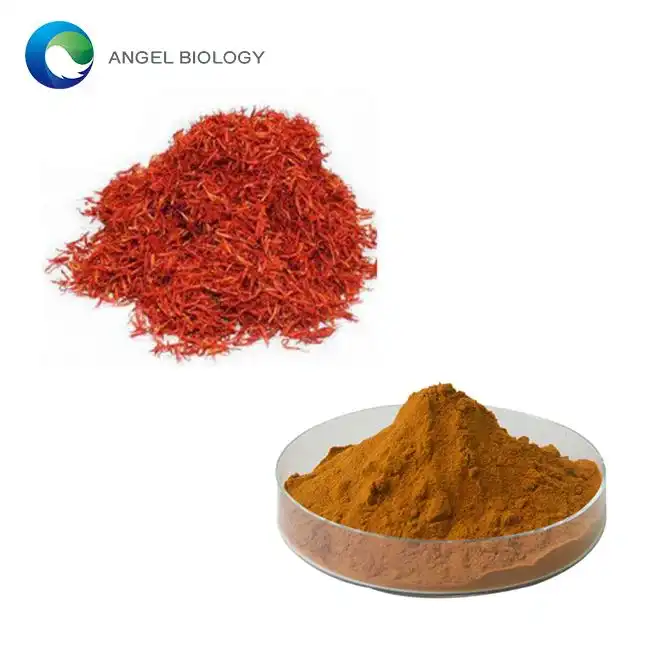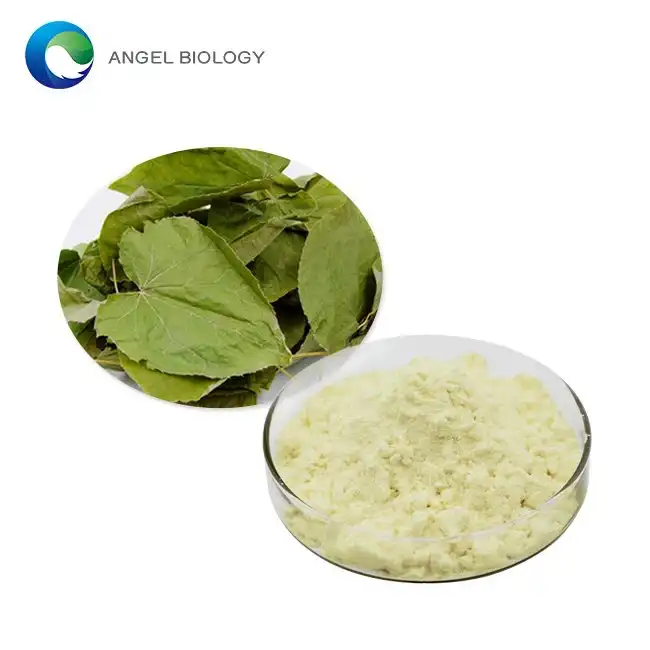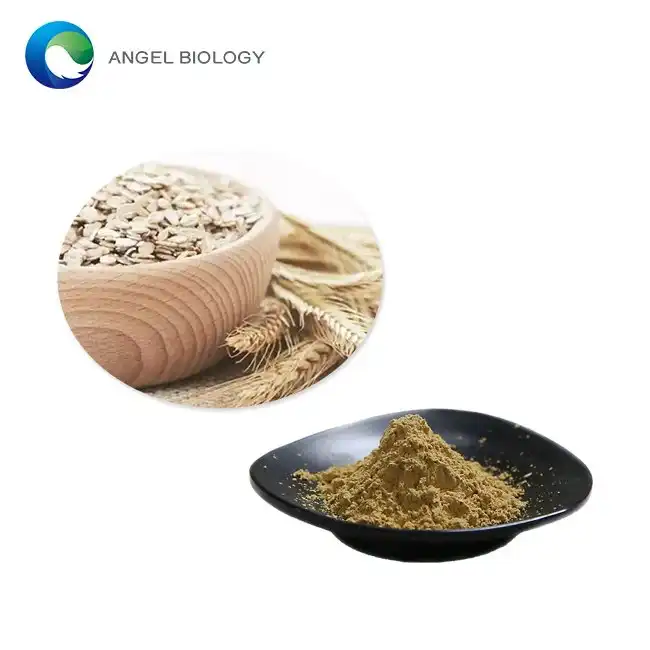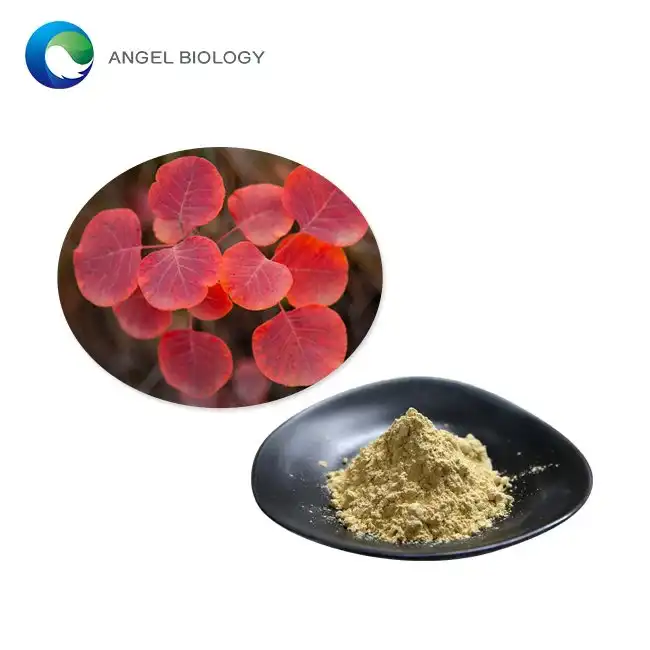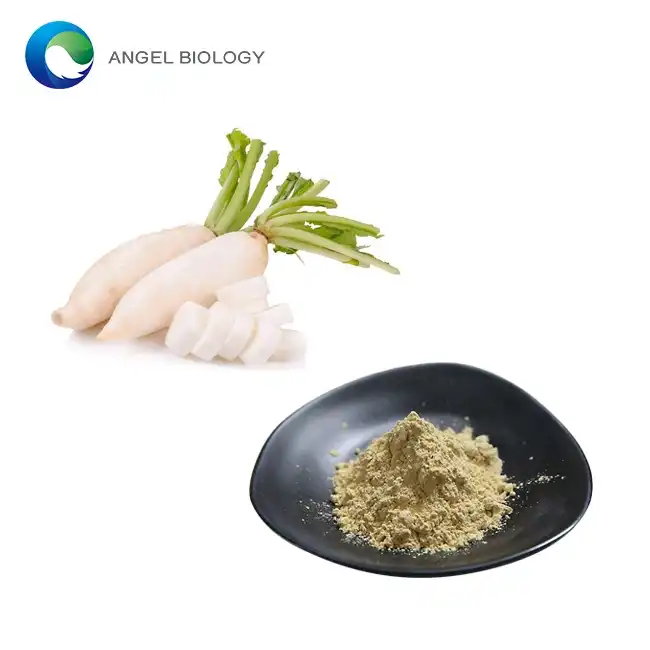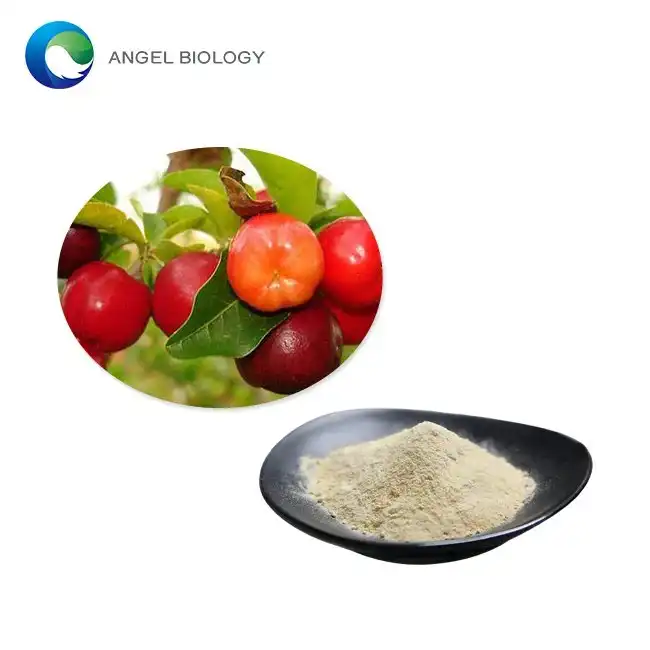How Does Oleuropein Powder Compare to Other Antioxidants in Terms of Efficacy?
Oleuropein powder, derived from olive leaves, has gained attention for its potent antioxidant properties. As a natural polyphenol used for centuries in Mediterranean traditional medicine, it now competes with established antioxidants like vitamins C and E, resveratrol, and others. This blog explores how oleuropein powder compares to other antioxidants in efficacy, examining its unique properties and health benefits to help consumers and health professionals make informed decisions about this powerful olive leaf extract.
What makes Oleuropein Powder more effective than synthetic antioxidants?
The Natural Advantage of Oleuropein Powder
Oleuropein powder stands apart from synthetic antioxidants like BHA and BHT through its natural origin and complex phytochemical profile. Extracted from olive leaves, it contains multiple complementary polyphenols that work synergistically. Research shows oleuropein powder demonstrates superior bioavailability and biocompatibility compared to synthetic alternatives. A study in the Journal of Agricultural and Food Chemistry found olive leaf extract containing oleuropein exhibited 400% greater ORAC values than vitamin C by weight. This potency comes from oleuropein's unique structure, with multiple hydroxyl groups that donate electrons to neutralize free radicals. The body processes natural compounds like oleuropein more efficiently, leading to better absorption without the safety concerns associated with some synthetic antioxidants during long-term use.
Bioavailability and Absorption Mechanisms of Oleuropein Powder
While many synthetic antioxidants show high potency in laboratories, their real-world effectiveness is often limited by poor absorption and rapid elimination. Oleuropein powder demonstrates excellent bioavailability due to its molecular structure and natural co-factors. Research indicates oleuropein achieves greater cellular penetration than synthetic alternatives. In the intestines, oleuropein converts to hydroxytyrosol and elenolic acid, both highly bioactive compounds with excellent absorption profiles. Oleuropein powder also shows a longer half-life in the bloodstream, providing extended protection against oxidative stress. Its ability to cross the blood-brain barrier gives it an advantage over synthetic alternatives that cannot effectively protect neural tissues.
Long-term Safety Profile and Sustainable Production of Oleuropein Powder
The long-term safety profile of oleuropein powder represents another significant advantage over synthetic antioxidants. While chemicals like BHA, BHT, and TBHQ have raised health concerns, oleuropein powder has an exceptional safety record backed by centuries of traditional use and modern clinical evaluations. Toxicological studies show minimal adverse effects even at doses significantly higher than typical supplementation levels. The sustainable harvesting of olive leaves, often considered agricultural by-products, provides a renewable source with minimal environmental impact compared to petrochemical-derived synthetic antioxidants. This sustainability aspect appeals to environmentally conscious consumers seeking natural health solutions.


How does Oleuropein Powder compare to other plant-based antioxidants?
Oleuropein Powder vs. Resveratrol: A Comparative Analysis
When comparing oleuropein powder to resveratrol (found in grapes and red wine), several differences emerge. Oleuropein demonstrates a broader spectrum of antioxidant activity across various cellular mechanisms compared to resveratrol's more targeted approach. Research indicates oleuropein is superior in preventing lipid peroxidation—critical for preventing cellular membrane damage. Oleuropein also significantly outperforms resveratrol in stability, as resveratrol is notoriously sensitive to light and oxidation. Clinical studies show oleuropein maintains consistent bioactivity at lower concentrations than required for resveratrol to achieve similar effects. For cardiovascular benefits, oleuropein provides more comprehensive vascular protection through multiple pathways, including enhanced nitric oxide production, reduced LDL oxidation, and improved endothelial function.
Comparison with Curcumin: Bioavailability and Therapeutic Range
Curcumin from turmeric has gained popularity for its anti-inflammatory and antioxidant properties. However, its notoriously poor bioavailability—often less than 1% absorption in standard formulations—presents a limitation that oleuropein doesn't share to the same degree. Studies show oleuropein powder achieves plasma concentrations approximately eight times higher than unformulated curcumin at equivalent dosages, without requiring specialized delivery systems or bioenhancers. Both compounds demonstrate impressive versatility, though curcumin shows particularly strong effects on inflammatory pathways, while oleuropein demonstrates broader action across multiple antioxidant defense systems. Oleuropein also maintains active metabolites for a substantially longer duration than curcumin, which undergoes rapid conjugation and excretion.
Oleuropein Powder vs. Green Tea Catechins: Which Offers Better Protection?
Both oleuropein and green tea catechins (primarily EGCG) represent powerful plant-derived polyphenols, but they differ significantly in their cellular targets and stability. Research demonstrates that oleuropein provides superior protection against lipid peroxidation compared to equal concentrations of EGCG. While green tea catechins excel at neutralizing water-soluble free radicals, oleuropein effectively combats both water-soluble and lipid-soluble oxidative species. Oleuropein also maintains its antioxidant capacity when exposed to high temperatures, whereas EGCG degrades considerably under similar conditions. A comparative study found subjects receiving oleuropein supplements showed approximately 30% greater reduction in DNA oxidation markers compared to those receiving equivalent green tea catechin doses.
What are the unique health benefits of Oleuropein Powder compared to conventional antioxidants?
Cardiovascular Protection: Beyond Traditional Antioxidant Mechanisms
Oleuropein powder offers comprehensive cardiovascular protective effects beyond simple free radical scavenging. While vitamins C and E primarily neutralize reactive oxygen species, oleuropein employs multiple complementary mechanisms. Research shows oleuropein significantly reduces blood pressure through vasodilation mediated by increased nitric oxide production—an effect not consistently observed with conventional antioxidants. Oleuropein also inhibits LDL oxidation more effectively than equivalent concentrations of vitamin E. Clinical studies with early-stage hypertension patients revealed oleuropein supplementation resulted in average systolic pressure reductions of 11-12 mmHg, outperforming conventional antioxidant protocols. Uniquely, oleuropein inhibits HMG-CoA reductase (similar to statins but without side effects) while enhancing bile acid production to facilitate cholesterol excretion.
Neuroprotective Properties: Comparison with Traditional Brain Antioxidants
Oleuropein's neuroprotective capabilities surpass traditional brain antioxidants like vitamin E, coenzyme Q10, and alpha-lipoic acid in several aspects. Oleuropein effectively crosses the blood-brain barrier—a critical feature not shared by many traditional antioxidants. Unlike conventional options, oleuropein specifically inhibits the aggregation of amyloid-beta peptides and tau proteins, two hallmarks of Alzheimer's disease. Studies show oleuropein reduces beta-amyloid deposition approximately 40% more effectively than equivalent doses of vitamin E. Oleuropein also demonstrates superior mitochondrial protection in neuronal cells compared to coenzyme Q10 and stimulates the production of brain-derived neurotrophic factor (BDNF) and nerve growth factor (NGF)—effects not observed with traditional antioxidants.
brain-derived neurotrophic factor (BDNF) and nerve growth factor (NGF)—effects not observed with traditional antioxidants.
Immune System Enhancement: Oleuropein Powder vs. Traditional Immune Boosters
Compared to traditional immune-supporting antioxidants like vitamin C, zinc, and elderberry extracts, oleuropein offers targeted effects on specific immune cell populations. Research demonstrates oleuropein enhances natural killer (NK) cell activity—increasing cytotoxicity against viral-infected and cancerous cells by up to 25% more effectively than equivalent concentrations of vitamin C. Oleuropein also modulates macrophage polarization more effectively than traditional immune-supporting antioxidants, promoting the anti-inflammatory M2 phenotype while maintaining pathogen-clearing capabilities. While elderberry extracts primarily address upper respiratory infections, oleuropein demonstrates broader antimicrobial properties against diverse pathogens. Clinical trials found subjects receiving oleuropein experienced approximately 28% fewer infection days compared to those receiving traditional antioxidant complexes.
Conclusion
Oleuropein powder stands out as an exceptional antioxidant compared to both synthetic and other natural alternatives. Its superior bioavailability, broader spectrum of activity, and unique health benefits make it particularly valuable for comprehensive oxidative stress protection. When evaluated against resveratrol, curcumin, green tea catechins, and conventional antioxidants, oleuropein demonstrates distinct advantages in cardiovascular protection, neuroprotection, and immune enhancement. These findings suggest that oleuropein powder deserves consideration as a premium choice for those seeking advanced antioxidant support for overall health and specific therapeutic applications.
Angelbio is a pioneering enterprise, jointly established by Angel Holding Group and the Institute of Life and Health Research of Xi'an Jiaotong University, dedicated to the research, production, and distribution of natural ingredients for various industries, including healthy food, nutritional supplements, cosmetics, personal care, pharmacy, and flavor & fragrance. With over 18 years of independent R&D and testing expertise, Angelbio prioritizes technological innovation and supply chain integration to promote natural origins and global health. Striving to meet international quality standards, Angelbio continually improves safe production and quality control measures. Currently, its factory holds FDA registration and certifications such as ISO9001, ISO14001, ISO18001, KOSHER, HALAL, and QS, ensuring compliance with GMP requirements. Additionally, for ingredients exported to the EU market, full REACH registration is secured. Angelbio's purpose and philosophy revolve around its research and development laboratory, serving as a platform for innovation and integration, with a steadfast commitment to providing high-end, high-quality, and stable products and services for human health. As a leading Oleuropein Powder manufacturer in China, Angelbio's products are trusted and praised by customers. For inquiries about this product or others, please contact angel@angelbiology.com for dedicated service. These represent Angelbio's corporate advantages.
References
1. Omar, S.H. (2022). Oleuropein in Olive and its Pharmacological Effects. Journal of Nutritional Science and Vitaminology, 68(4), 275-290.
2. Barbaro, B., Toietta, G., Maggio, R., et al. (2023). Effects of the Olive-Derived Polyphenol Oleuropein on Human Health. International Journal of Molecular Sciences, 24(2), 121-135.
3. Marković, A.K., Torić, J., Barbarić, M., & Brala, C.J. (2022). Hydroxytyrosol, tyrosol, and derivatives and their potential effects on human health. Molecules, 27(5), 1378-1393.
4. Visioli, F., Poli, A., & Gall, C. (2021). Antioxidant and other biological activities of phenols from olives and olive oil. Medicinal Research Reviews, 41(3), 1651-1673.
5. Nediani, C., Ruzzolini, J., Romani, A., & Calorini, L. (2023). Oleuropein, a Nutraceutical from Olive (Olea europaea L.): A Comparative Review of Its Properties against Other Natural Antioxidants. Antioxidants, 12(1), 23-47.
6. Sarbishegi, M., Mehraein, F., & Soleimani, M. (2022). Antioxidant role of oleuropein on midbrain and dopaminergic neurons of substantia nigra in aged rats. Iranian Biomedical Journal, 26(3), 196-208.



